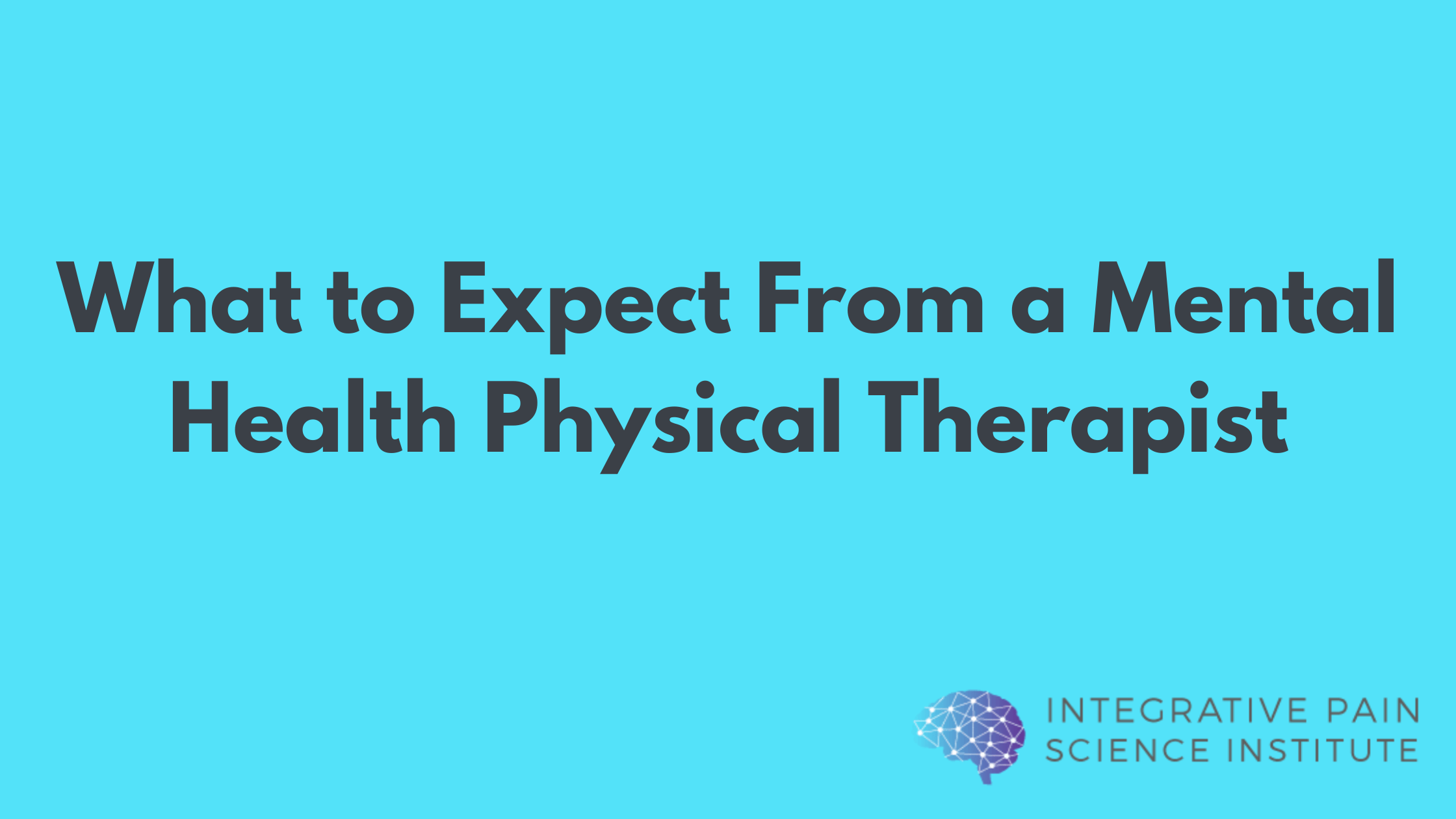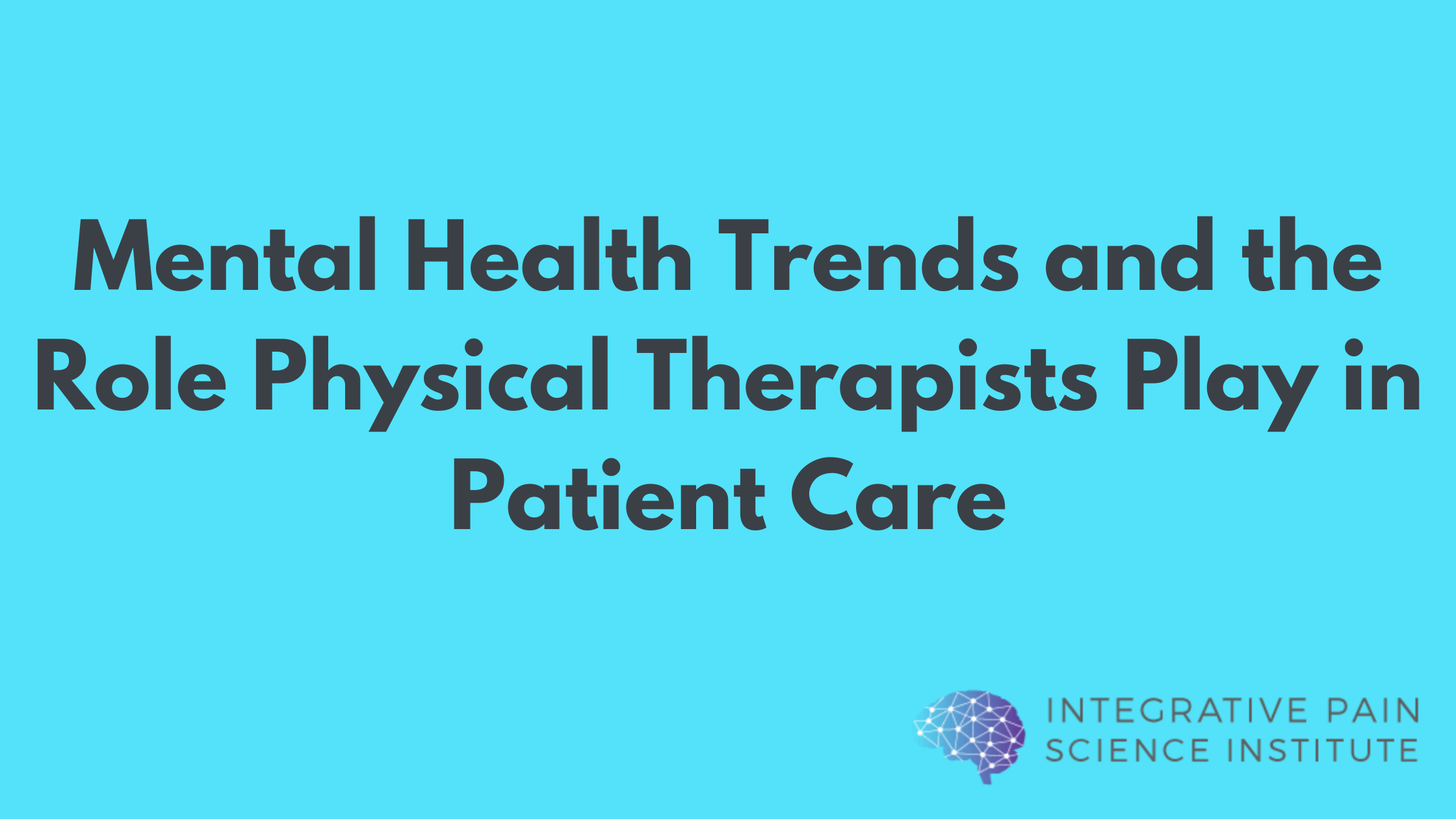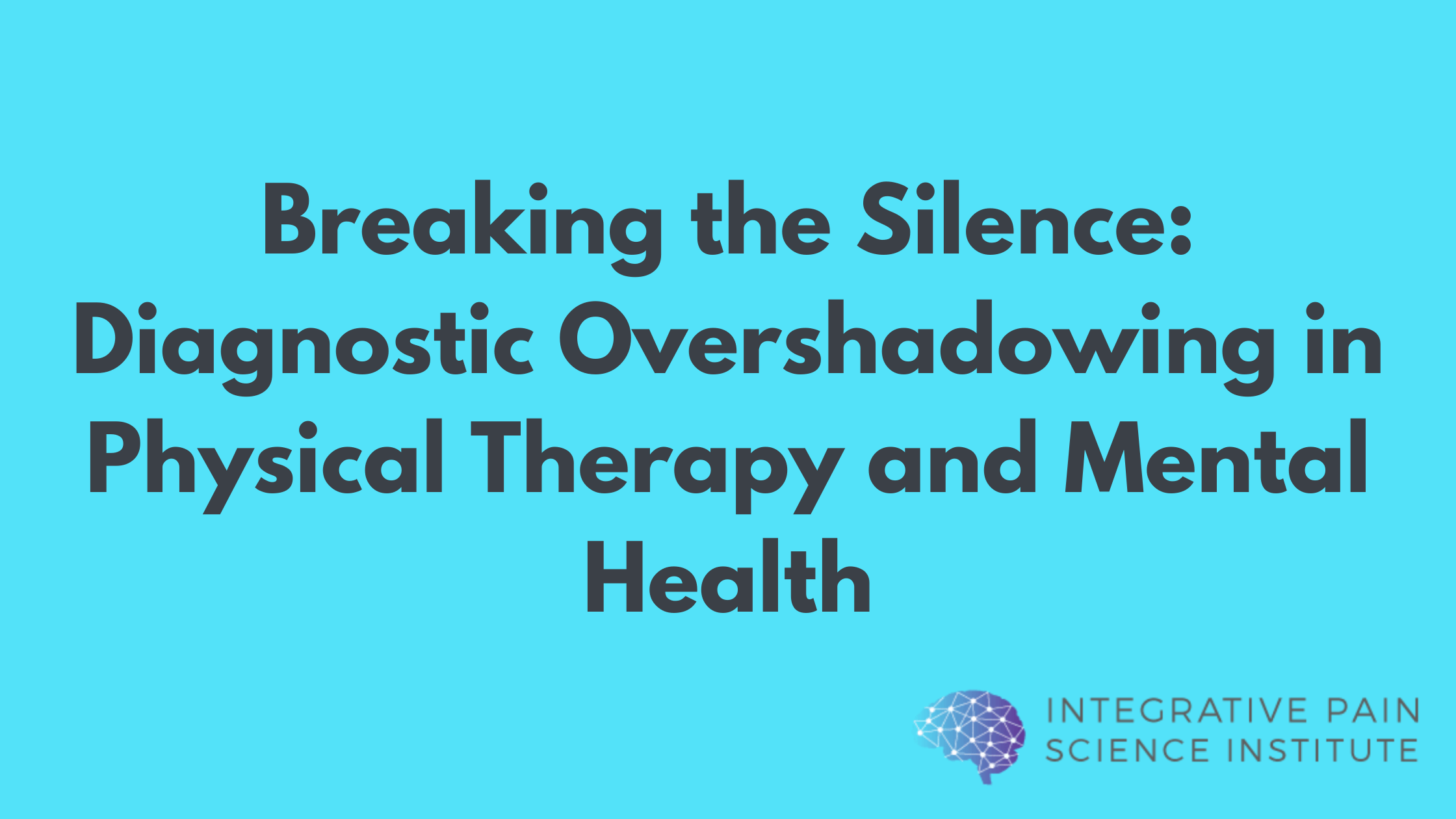Earlier this year, I announced my favorite, most impactful program yet: the Pain Innovator Project (PIP).
Within PIP, each pain practitioner created their own unique protocol based on their experiences and wisdom. Then, they tested their protocol and disseminated it so it can be applied broadly.
They used their creativity and real-world observations to make measurable improvements in pain care.
They didn’t wait on academia to catch up with them. They didn’t wait for permission to create evidence-based protocols. They innovated now. And patients everywhere are better for it.
In this issue of the Integrative of Pain Science Institute monthly newsletter, I’m shining a light on the nine new innovative IPSI Fellows who graduated from PIP earlier this year. I encourage you to read about their protocols.
Congratulations to the New IPSI Fellows
Heather Newton Carlyle, PT, DPT
Heather is a physical therapist in rural Georgia who both has a private practice and offers primary care to patients. In her work, she noticed people with neuropathic pain—such as those experiencing diabetic neuropathy and chemotherapy-induced peripheral neuropathy—do not receive adequate care. In fact, they are often left struggling with a disability, which can have a profound impact on all parts of their life.
Within PIP, Heather created an integrative program that can be operated both in-person and virtually called Path to Less Nerve Pain. She has already documented some incredible outcomes with her patients and will be publishing a case study in Physical Therapy (PTJ) later in 2022.
Theresa is a board-certified women’s health therapist with more than 35 years of experience. During these decades of dedicated patient care, Theresa has experienced many frustrations about the current state of women’s healthcare, including a lack of women’s health literacy. Time and time again, she has heard stories of women being told by doctors that they should “just relax,” “have a glass of wine,” or “accept that this is just how it’s going to be.” Theresa rejected these suggestions and has always believed in a better, more dignified, and more compassionate vision for women’s health.
During PIP, Theresa met with numerous practitioners within her community in Philadelphia and created the Perinatal Partners Network of women’s health professionals. This web-based network of resources connects women to practitioners who understand the unique needs of women. The online directory has already grown to over 500 licensed health professionals and is a fantastic example of the Community Based Comprehensive Childbirth and Postpartum Model in action.
Stephanie Carter Kelley, PT, PhD
Stephanie has been a physical therapist, educator, and researcher for over 30 years. When she began using yoga and mindfulness in her personal practice, she saw a difference in her patients… and herself. She feels she “truly blossomed as both a person and as a professional.”
While in PIP, Stephanie created a program called Yoga for a Better Back that any rehabilitation professional can apply. Her protocol teaches rehab professionals how to use yoga from a biopsychosocialspiritual approach, since yoga may be as effective as traditional physical therapy for addressing back pain.
Tania Parker, Physiotherapist and Jolyane Aube, OT
Tania and Jolyane are a French Canadian dynamic duo; Tania has a background in physiotherapy, while Jolyane has a background in occupational therapy. French speaking adults are an underserved population in Canada, and often do not have access to essential pain education resources in their language. Tania and Jolyane sought to provide support for their fellow French speakers.
Through PIP, they created an online pain education program in French, which includes pain education, cognitive behavioral techniques, and graded activity and pacing. Tania and Jolyane are currently marketing the program to French Canadians and have plans to create an English language version, as well.
Karen Clarke, PT, EdD
Karen is a physical therapist who works in an Intensive Care Unit with patients who often have pulmonary conditions, which cause difficulty breathing. She knows that shortness of breath can lead to feelings of anxiety, which interferes with the rehab process. With compassion for her patients, she wanted to address both concerns simultaneously.
Karen used her PIP experience to create a brief but effective mindfulness intervention for patients in the ICU to decrease anxiety-related dyspnea and improve mobility. Her case study demonstrated decreased anxiety and improved engagement and participation in physical therapy. She is teaching her protocol to her physical therapist colleagues at the hospital where she works, and I hope it can be spread even more broadly as it continued success.
Olga is an integrative rheumatologist in private practice who often treats patients experiencing fibromyalgia. As fibromayalgia’s causes are not well-understood, research has traditionally been poorly funded. However, Olga believes her patients deserve healthcare’s best, so she took matters into her own hands.
During PIP, Olga created a nutrition program for women experiencing fibromyalgia. Her next step is to turn it into a practitioner training program to disseminate the protocol more widely. She will teach primary care physicians how to evaluate and treat fibromyalgia from a functional nutrition and functional medicine approach.
Dena is an experienced and certified holistic health educator and practitioner specializing in mind-body movement, pain management, and behavior change. She works with patients who experience chronic pain, as well as patients of an advanced age. I was thrilled when she joined PIP, because she helps prove that IPSI’s work is applicable far beyond physical therapy, and it can create impact for a diverse array of pain practitioners.
Dena created Empowered Movement for Pain, a virtual pain education and mind-body program taught weekly over the course of six weeks. It incorporates pain education, mindfulness, yoga therapy, and breathing techniques. Dena is currently implementing the program in a chronic pain clinic, as well as running it privately.
Carla is a physician assistant who serves veterans within the VA healthcare system. She works with veterans receiving long-term opioid therapy, often at high doses. In her experience, many veterans are fearful to taper or stop opioid therapy, and they also are not ready to discuss alternative treatment options.
To support her patients, Carla used PIP to create an eight-week integrative pain education program, using mindfulness as a catalyst for behavior change. The protocol components include pain education, mindfulness, pain psychology, nutrition, and other complementary and integrative approaches. Her aim is to implement her protocol within the VA to educate veterans on safe and effective alternatives to opioids. In the long term, she hopes to use the program as a supportive adjunct for veterans who choose to taper their dosage, improving their health and quality of life.
???? Become a Pain Innovator and IPSI Fellow
Because the inaugural cohort of the Pain Innovator Project was such a resounding success, I plan to run the program again soon.
Sign up for the waiting list, so you can be the first to know about the upcoming enrollment period.
Join the Pain Innovator Project Wait List
Within PIP, you will
- Form a unique niche by developing your own protocol or method.
- Enhance your practice’s profitability and success.
- Create disruptive change in the healthcare system.
Practitioners like you deserve to have your voice heard when it comes to pain research and protocols. Don’t wait for permission to innovate. Let’s do this together.
Feel free to email me with any questions at [email protected].
Joe Tatta, PT, DPT



